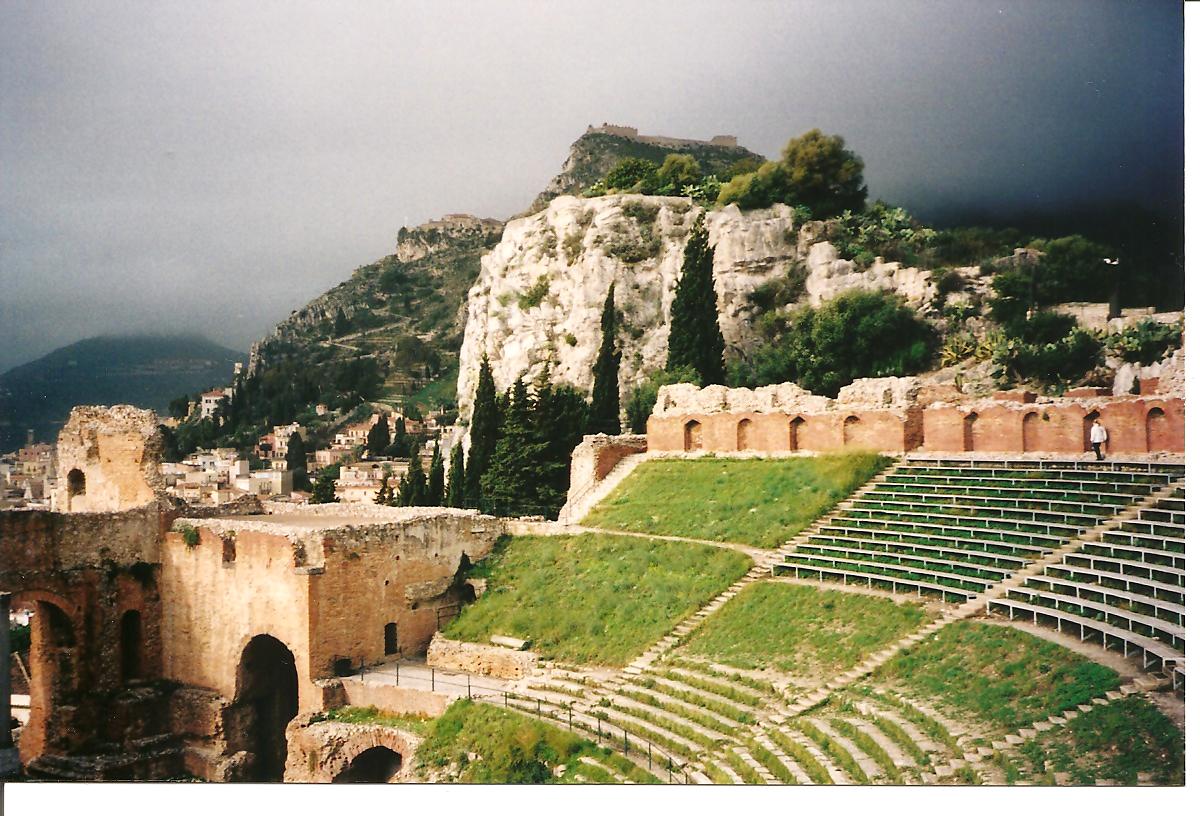The Greek States, the Italian Peninsula, and Syracuse around the time of the Rise of Macedon,
was also full of conflict. Dionysius II had succeeded his father Dionysius I as tyrant in Sicily in 367 BC by preventing Dion from arranging with his dying father that his half brothers Hipparinus and Nysaeus share power, sneaky bastard that he was!
Dionysius II invited Plato to come advise him and also recalled from exile the historian Philistus, who caused Dionysius to suspect the influence of Plato on Dion. This seemed like a noble move. One can imagine that Plato was flattered and excited to influence the son of the Tyrant and change the course of history in the troubled region.
It was not to be so.
When Plato lectured on the goodness of justice and the misery of unjust tyranny, Dionysius was displeased and finally admitted that if Plato was looking for a virtuous man, his labor was lost there! Some much for that Golden Age. Jealous of the friendship between Plato and Dion, Dionysius II sent Dion into exile for writing a letter to Carthaginian commanders in Sicily even though he was their usual diplomatic contact; so Plato returned to Athens.
Dionysius, went on to cause strife and be some what similar to his father but significantly less successful. In the end he sailed off into obscurity after being granted a peaceful exit to Corinth, by Timelon. The Greek adventure in Sicily was always contentious as it abutted the rapidly changing Italian Peninsula, and an aggressive Corinth. The contrast between Sicily and the Greek States is interesting.
The Sicilian area was fraught with people fighting for equity and freedom and ultimately succeeding in deposing Dionysius, then removing Dion who had defeated Dionysius, beating off the Carthaginians expansionist plans. In fact Timelon (a key figure in the action to achieve these noble goals) took a very different path than Phillip II.
Timoleon’s force was able to remove every tyrant from Greek Sicily including Mamercus of Catane, Hippo of Messena, Nicodemus of Centoripa, and Apolloniades of Agyrium. The Carthaginians made peace, and the Halycus River was recognized as the border. Timoleon retired from power and lived near Syracuse greatly honored and summoned for his judgment in difficult cases for two years before he went blind and died.
Whereas Phillip II sought to consolidate his power via guile, bribery and warfare retaking lost territories, bringing others to heel and bribing Thracians to kill his blood enemies.

He quickly broke his treaty with Athens after re ordering his armed forces and was now poised to conquer other Greek City States. Viewed as a semi barbaric nation state the Macedonians, watched carefully as the Second Sacred War was conducted with Sparta, Thebes, Phocians, Thessaly and several other city states all manipulating and fighting amongst each other. It was during this time that Phillip suffered a rare defeat at the hands of the Phocians.
The timing of his next moves would need to be precise. Once his forces were rebuilt where would Phillip II strike?
Before we look at each battle through the lens of Great Battles of History and its system for ancient warefare we will peruse a bit more back ground on Phillip himself in the next post on the Rise of Macedon (RoM).
Related articles
- Manitea, Introduction to Greatness Evolved 2 (meshtime.com)
- The Rise of Macedon Campaign (meshtime.com)
- Greatness Evolved, Pompey v Caesar Conclusions (meshtime.com)

